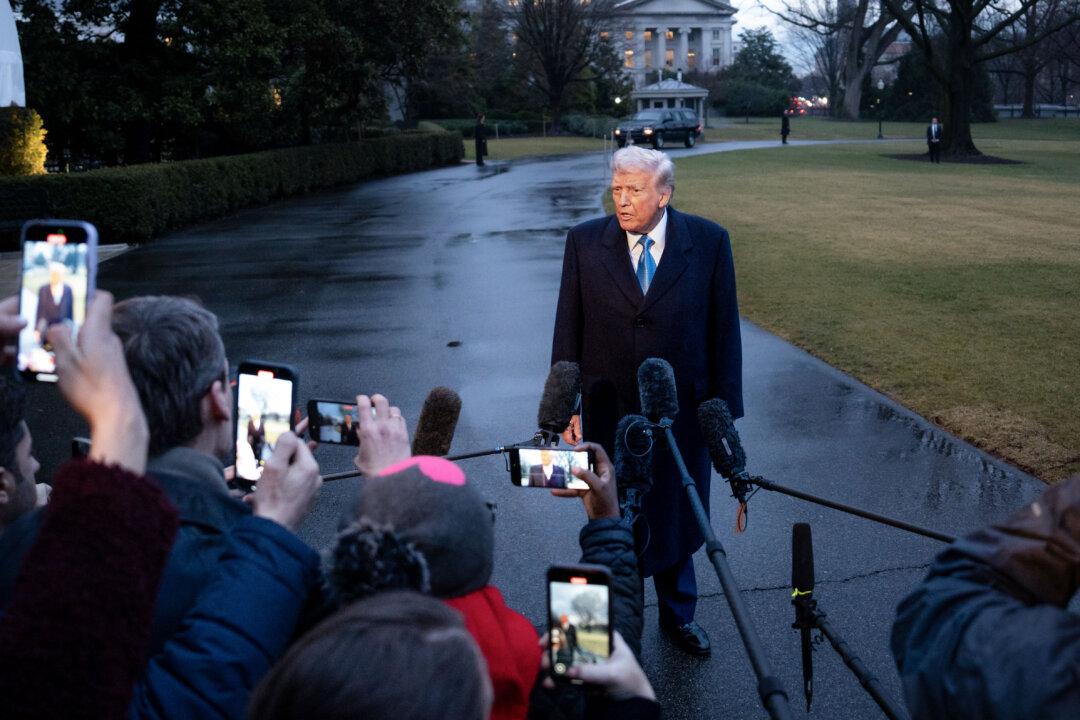President Donald Trump on Feb. 2 defended his move to impose sweeping tariffs on the top three U.S. trading partners, acknowledging that the actions could cause “some pain” for Americans in the economic fallout.
On Feb. 1, Trump imposed 25 percent tariffs on Canada and Mexico and 10 percent tariffs on China, citing unfair trade terms and his wish to curb illegal immigration and illicit fentanyl trafficking. Opponents say the tariffs, scheduled to start on Feb. 4, will likely spur a global trade war.





